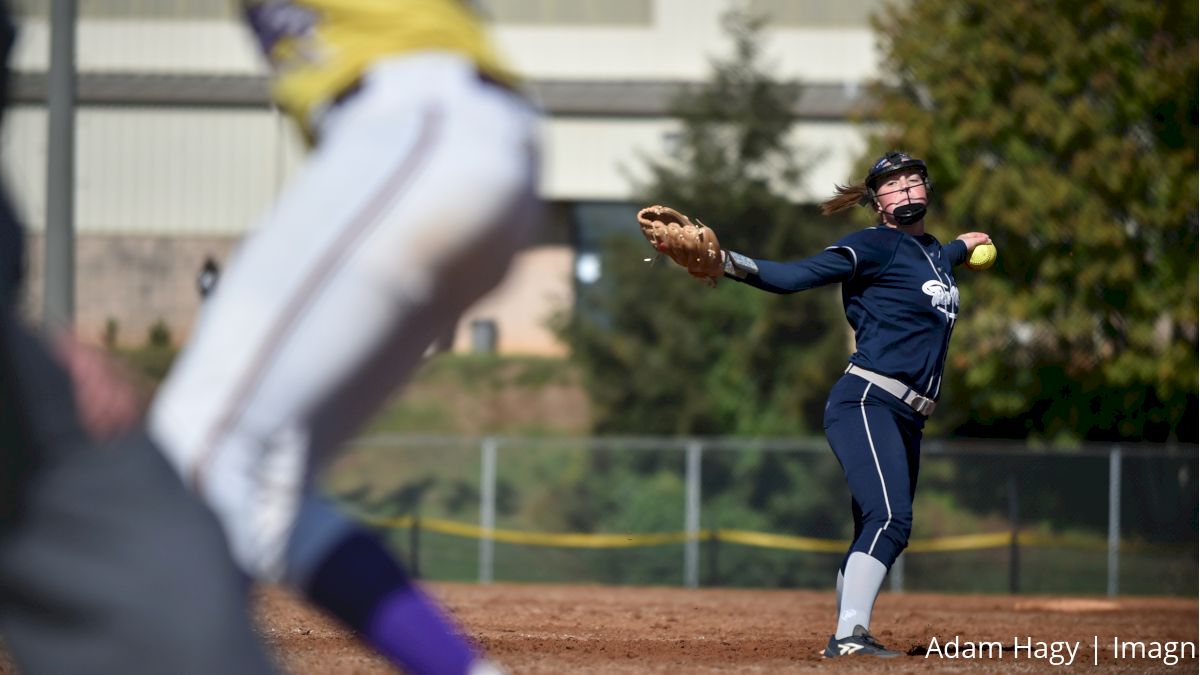How To Pick The Right Softball Pitching Coach
How To Pick The Right Softball Pitching Coach
What should you look for in a pitching coach? Dr. Kaila Holtz offers some helpful tips for picking the right fit.

Dr. Kaila Holtz is a Canadian Olympian, pitching coach, and Sports Medicine Physician. She started coaching younger pitchers in high school and after playing at the University of Massachusetts under Hall of Fame Coach Elaine Sortino she stayed on as an assistant. Throughout medical school and residency, Dr. Holtz has taught pitching lessons helping teams win both Provincial and National Championships as a consultant. She is a Master Coach Developer for Softball Canada’s National Coach Certification Program and a member of the World Baseball Softball Confederation Medical and Anti-Doping Commission.
Follow her on Dr. Holtz on Twitter @KailaHoltz
The Vetting Process
Coaches are one of the most important people in a young athlete’s life. Outside of a family unit, coaches are often their first exposure to a new style of communication and discipline. As a parent, I can’t over-emphasize the importance of vetting individuals involved in shaping your child’s values and self-confidence.
When looking for a coach I would suggest first opening your ears. During a competition, effective coaches actually say very little. I remember 2018 National Champion Florida State Head Coach Lonni Alameda telling me at the beginning of my coaching career, “Homework is done at practice, in the game just let them play.” If you’re a parent or player looking for a good coach, go to a game and listen. Do the coaches observe and direct players as needed? Or are they out on the field yelling adjustments every play? Micromanaging the game sends out signals of mistrust and incompetence. Game-yelling is a huge red flag for me.
In practice, my best coaches taught me through inquiry. “What are you trying to do?” Denise Davis of Planet Fastpitch, a large softball training facility in Uxbridge, MA, asks her pitchers. Curiosity and self-reflection is part of the culture there. I credit her and this approach in helping me make the Canadian Olympic Team. I call this “intent coaching,” and it almost always reveals the underlying reason for a technical or tactical error. Coaching an athlete’s intent shapes the internal and external cues players give themselves to produce a complex movement like delivering a pitch. A more reactive style of coaching provides feedback on a movement pattern rather than viewing the movement pattern as feedback itself.
Biomechanics vs Style
Good coaches use video analysis with discipline. When watching videos of Monica Abbott vs. Yukiko Ueno good technical coaches can tell me the fundamental similarities that exist between them and what differences amount to style. If they take video of pitchers they do so from three angles: the side, the front, and the back commenting on the most important technical flaws, rather than all of the technical flaws they see.
Lastly, effective coaches make logical suggestions given what we know about the principles of sports biomechanics. Picking two or three key teaching points per video analysis session to help shape an athlete’s intent is critical in not overwhelming them.
Pitch Calling
I was once asked at a coaching seminar, “At what level is it appropriate for coaches to call pitches during the game?” After a long pause, my response was, “The Olympics.” But coaches don’t call pitches at the Olympics like they do in 14U travel ball. The catcher’s role isn’t simply to relay signals from the bench to the pitcher who executes them like a robot.
Both the pitcher and the catcher have already a pitch in mind and if a signal comes from the bench it’s a confirmation rather than a brand new idea. Over-calling pitches from the bench at the youth level robs athletes of critical tactical knowledge needed to compete at an elite level. Unless you’re coaching at the Tokyo Olympics in 2020, I don’t see a reason to put winning over development.
Which Numbers Matter?
In keeping with teaching pitchers and catchers how to get ahead of hitters, chase bad pitches or set them up for a ground ball, good coaches appreciate meaningful data. Some stats to look at are the number of first-pitch strikes, the percentage of strikes, the count when hits are given up, the sequence of pitches where hits are given up, walks per game, etc.
Sure, throw 65 mph riseballs and this stuff doesn’t seem to matter that much. But eventually, pitchers will find themselves at a competitive level where pure technical skill is secondary to tactical skill. And when that happens good coaches will have taught them to have a pitch in mind and be able to execute it.
Lastly, good pitching coaches appreciate the personality type the position attracts. While pitchers are extremely driven, they can easily get wrapped up in the pressure of the position and lose their cool. Through direct eye contact and an empathetic response to failure, great coaches show they care about their pitchers as individuals, no matter their successes or failures on the field.
I tell parents my job is to help their daughters become successful, well-adjusted adults. With the long-game in mind, individual ups and downs can be put in perspective. Excellence reflects a consistent daily effort to improve and support that endeavor is a coach that appreciates the privilege of teaching capable girls to become powerful women.
Final Thoughts
The minimum standard for working with youth athletes should be a recent background check and completion of basic sports ethics training. Beyond that good coaches behave professionally and challenge athletes both physically and emotionally in ways consistent with published long-term athlete stages of development.